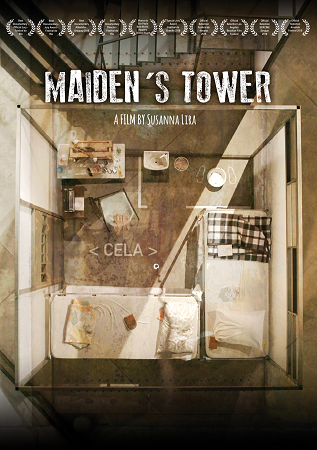
Maiden’s Tower 2018
Distributed by epf media, 324 S. Beverly Drive, PMB 437, Beverly Hills, CA 90212; 310-839-1500
Produced by Susanna Lira and Tito Gomes
Directed by Susanna Lira
Streaming, 97 mins
College - General Adult
History; Human Rights; Prison
Date Entered: 03/25/2021
Reviewed by Stephanie L. Barrett, Interdisciplinary Social Sciences Outreach Librarian (Anthropology, Public Health, Linguistics, ASL, Environmental Humanities), University of RochesterMaiden’s Tower captures the collective memory of a group of female cellmates held in Tiradentes prison, São Paulo Brazil, during military rule in the 1970s. These women were incarcerated as political prisoners and subject to all forms of abuse and torture, however the value in this film are the stories of resiliency, courage, and sisterhood these women experienced during their time in Tiradentes. Since the military regime ended in the mid-1980’s, many political and military leaders in Brazil have tried to erase this turbulent time of violence and human rights violations from history. These women have breakon their silence in an attempt to heal and bring to light the barbarity of this military dictatorship. This film is entirely subtitled in English and, at times, the translation seems to be imperfect and does not fully encapsulate what the speaker intended. Despite these moments of confusion, this film is powerful and worthy of viewing.
Maiden’s Tower opens with jarring images and equally haunting audio of the brutality activists and protestors experienced during the military takeover in Brazil. We are slowly introduced to the women as they try to draw and recreate the prison from memory, since all that presently stands of the tower is an empty stone entryway. Eventually, the formerly incarcerated were brought to a life size reproduction of their spaces in Tiradentes, some wide-eyed and shaking. The women’s stories unfold of how they were arrested and their first experiences of life in the prison. However, stories of torture are quickly eclipsed by their life-changing and enriching experiences of living, learning, and supporting each other during their time in the prison. Eventually, we learn that one of the inmates became president of Brazil, while many others continued their work in fighting against oppression in a multitude of ways.
Throughout the film, glimpses of memories are shown without full context, and it seems the viewer’s decision on how to construct a narrative of the women’s time in prison. While frustrating at times, this story should take effort to understand. The juxtaposition of the cruelty and terror the women experienced with the joy and individual growth occurring during their time imprisoned deepens the complexity of their collective story. Maiden’s Tower is rich with themes and potential discussion points of what freedom truly is, what constitutes bravery and how very different this can be for women, and how history can be erased. Given the brief nudity and the serious subject matter of this film, it is most suitable for adults and college students and could supplement studies focusing on Brazilian history, gender studies, modern revolutions, and human rights.
Awards:
Special Jury Award, Brasilia Film Festival; Jury Award Best Documentary, Rio De Janeiro International Film Festival; Audience Award Best Documentary, Rio De Janeiro International Film Festival; Best Documentary Director, Rio De Janeiro International Film Festival; Best Documentary, Atlantidoc, International Documentary Film Festival Of Uruguay; People’S Choice Best Film, São Paulo International Film Festival, Brazil
Published and licensed under the Creative Commons Attribution 4.0 license. Anyone can use these reviews, so long as they comply with the terms of the license.